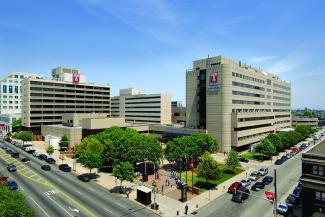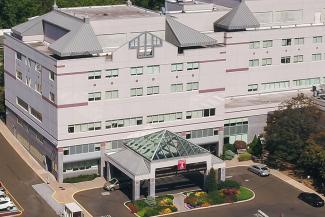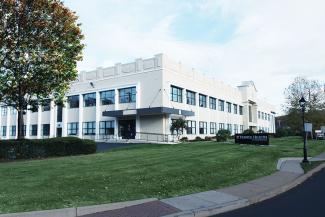Temple’s Adult Congenital Heart Disease Program helps patients understand and manage heart conditions they were born with and improve their quality of life through medical treatment or lifestyle changes. Our state-of-the-art facilities and resources, team of experienced specialists, and dedicated staff offer care tailored to each patient’s condition and concerns.
Comprehensive Diagnosis
Adults with a congenital heart disease have a birth defect in one of the structures of their heart or the blood vessels connected to the heart—an atrial-septal defect, for example, is a hole in the dividing wall between two heart chambers. If left untreated, such defects may impair heart function and occasionally lead to serious complications such as heart failure, stroke, and dangerous heart rhythm disturbances (arrhythmias).
Although many congenital heart diseases are discovered at birth or during childhood, some are not diagnosed until adulthood and others may worsen with age. Symptoms vary, so it is important for patients to receive assessment at a specialized center. Temple’s extensive facilities, including one of the region’s largest cardiac catheterization labs, allow our specialists to employ the most up-to-date diagnostic procedures—from exercise stress testing to advanced imaging scans like intracardiac ultrasound, cardiac CT and MRI—to determine the type and extent of congenital defects.
Leading-Edge Treatments for Congenital Heart Disease
We help patients with milder congenital heart disease monitor their condition, manage any needed medications, and make lifestyle changes if needed. Other patients will need a surgery or other interventional procedure—for example, to separate fused heart valves, implant a pacemaker, or repair a larger hole in the heart wall. Temple’s cardiovascular specialists are highly skilled at minimally invasive approaches to repair complex forms of congenital heart disease. This often means smaller incisions, less pain, and a shorter hospital stay. Some procedures can be performed using a thin flexible tube (a catheter) guided through the blood vessels to conduct diagnosis and repair.
Temple is one of the region’s leading centers for minimally invasive heart procedures. Our cardiovascular surgeons perform hundreds of open and minimally invasive surgeries each year. Our interventional cardiologists have extensive experience performing cardiac catheterization and catheter-based procedures to help treat patients with congenital heart disease. Our specialized diagnostic and treatment team includes:
- Cardiologists
- Cardiovascular Surgeons
- Interventional Cardiologists
- Radiologists
- Electrophysiologists
- Cardiovascular Imaging Specialists


